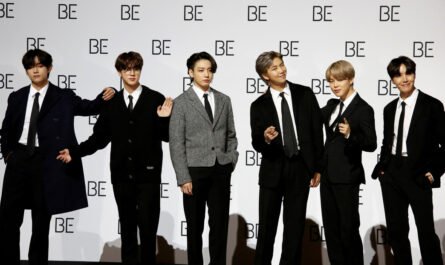Written by Krystal Anderson, Translated by Dubo Shim, Wonjeong Min, and Sukyung Jeong l Nullmin 30,000 won
You will be surprised at three points from the beginning of the book.
The fact that a lot of academic and cultural analyzes of Korean music have been accumulated in the English-speaking world. And a scholar’s love for K-pop and a greater love for black music. Of course, those trusts are built on detailed case studies.
Through all this, Professor Crystal Anderson (African American Studies, George Mason University, USA) revealed the title of the book .
Some readers are uncomfortable with the assertive and provocative title. As there was a time when Japanese entertainment’s features and subtitle insertion functions were copied intact, even if they were affected, Korean dramas are not only testify to the uniqueness that can’t be said day by day. . Moreover, hybridity and intertextuality (meanings are generated and changed by the influence of different texts, French semioticist Julia Cristeva) are themselves the essence and root of culture.
So, if you feel uncomfortable, let’s review these words for a moment.
“We made K-pop based on black music.” (SM Entertainment founder Lee Soo-man, quoted from the book). “Black music is fundamental. Even when doing various genres such as a house, urban, and PBR&B, there is no change in the fact that black music is the basics.”
Jinyoung Park (CEO of JYP Entertainment) introduced the label as ‘black music with a K-pop feel’ and a preference for black American music with the stage name ‘Asian Sol.’
Reading a book deserves to start at this point, beyond understanding the ‘genre engineering’ analysis of the influence of black music on K-pop (not only musical elements but also the codes of music videos such as choreography and styling and singer discovery systems), through huge hybridization at the cultural edge A sense of meaning that created a global genre. Further, measuring the distance between K-pop and black music is ultimately a matter of quantifying the depth and impact of cultural diversity and inclusion among consumers of popular culture.
The last issue that draws attention is the way and attitude that world music, especially mainstream Western music (in), has borrowed and consumed black music. The relationship between pop music and black music is as deep-rooted as hip-hop, R&B, soul, gospel, jazz, and dance like Big Bang and Earth, but a culture in which black people are excluded from the distribution and consumption stages as pioneers and producers of popular culture. There are many private criticisms. As mentioned by the author, Professor Paul C. Taylor (Department of Philosophy, Vanderbilt University) calls this the ‘Elvis Effect.’ Looking directly at his criticism (1997), this is a phenomenon in which whites participate in the traditionally carried out process of cultural production for black people and cause uncomfortable feelings. It stems from the structure in which the operation of the artistic output is ‘discovered’ by the white, and eventually, the trained white becomes the pioneer and the mainstream. The author’s gentle statement, “(Discomfort) is revealed in moments when some non-Black artists participating in black traditions neglect their socio-historical context and meaning,” the author’s gentle report states, “Most importantly, the white community’s desire for cultural goods has historically been It is based on Taylor’s candid analysis that it was a discriminatory trajectory.
In this context, K-pop is being enjoyed by Koreans, not by whites or blacks, but by Koreans.
From the 1990s, when they experienced globalization immediately after the military dictatorship and grew up, criticisms close to the indifference of the time that “Asian popular culture only imitates” or “the entire Korean music industry is a copycat of Western or Japanese popular culture” have sometimes been the appropriation of black music. Refining it with the sincerity debate, etc., seems to be a part of the unique genre it takes care of.
“It is problematic to use certain elements without respect for the original work, simply for the sake of a cool-looking effect” (Critique cited by the author, 2013), “Black acting makes them somewhat cooler and more authentic and gives them a sense of publicity. The idea of appealing seems to be systematized. This is not showing even the slightest respect for other cultures” (2015). to be declared as “a branch of the global R& B tradition.” In his view, K-pop cannot be formed without teen idols, indie music, hip-hop, etc.. Without a digital-based fandom that “represents a transnational community” that transcends criticism and enjoyment, K-pop does not last.
Some of the author’s explanations read like ‘The Big Bang Theory of Black Music.’ The US position is also vital. However, rather than the black scholar’s obsession with ‘original,’ support for non-mainstream music to become the first global genre, going beyond the black-and-white composition is consistently perceived in the undercurrent.
If you look at the ‘History of K-Pop’ introduced on the website of LA Film School, one of the country’s leading film schools, the 3rd generation since 1997 (1st generation after HOT, Sechs Kies, SES, 2nd generation after GOD in 1999), the 3rd generation is classified as EXO, BTS, Black Pink, etc.) in the 2010s), but the success of the 3rd generation in the US market is “unique.” “Honestly, American entertainment is dominated by a single, white-dominated culture. The majority of successful, industry-backed groups are white… K-pop idols not only sell merchandise but are also very talented, perfect in style, socially conscious… Every generation has their pop stars to please, but for the first time in America, they are Korean, not white.”
As John Berger of All Languages We Know puts it, the song is “sung in the presence of an absence.” Those who listen to hybrid K-pop should be more confident. It’s because idols aren’t called all over the world just because of their choreography or appearance.











